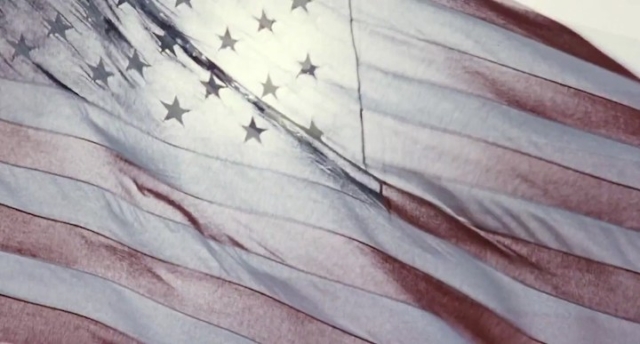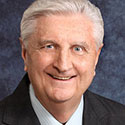Is Our Government ‘Adequate’ for Today’s Citizenry?
By The Catholic Thing

John M. Grondelski: If America becomes too secular, can our system of government – one “made for a moral and religious people” – survive?
In a recent column, “God and Caesar Today,” I raised the question of whether the Christian division of “things of Caesar” and “things of God” still made sense. We live in a time when Caesar (at least in his “democratic” versions) professes to be agnostic about God. It’s also a time when growing numbers of people couldn’t tell you where the idea of “God and Caesar” comes from. So when we Christians talk about “rendering” each his due, we are speaking a language Caesar and his minions no longer understand. The issue is whether we are talking to or past each other.
Closely allied to that question is whether the citizenry we have can make sense of our system of government. Writing to the Massachusetts Militia in 1798, John Adams made his famous observation that “[o]ur Constitution was made for a moral and religious People. It is wholly inadequate to the government of any other.”
Adams could assume our Constitution was made for religious people because, 18th-century Enlightenment thought notwithstanding, a critical mass of American thought still coasted along on remnants of faith and morals that ultimately came from Catholicism. But like many other revolutionaries who claimed to be just reformers, the Founders assumed (wrongly) that the theological adjustments they made would not affect the rest of the order in which they operated. Removing the God of Creation and Redemption and replacing Him with the real absence of Deism is not going to give you the robust God of Abraham, Isaac, Jacob, and Jesus.
That one cannot tinker “over here” without affecting “over there” was already evident with Luther. He abandoned a real order of being and good in favor of nominalism. In that perspective, there was nothing intrinsically “good” or “evil” about “good” or “evil.” They were merely commands that reflect God’s omnipotent will. God goes from a Creator of reality to a divine labeler: truth is good, lying is bad.
But when people’s faith in God wanes, less-than-omnipotent men usually step into the void and, in this case, took over the divine labeling function. From there the trip to moral relativism (and its dictatorship) is faster than you can say “intersectional gender binary safe space!”
And when the God of Providence goes on an extended vacation, leaving a windup clockmaker’s universe behind, who misses Him after a while? It’s not God leading history; history suddenly has its own “arc” that “bends” (consciously? semi-consciously? unconsciously?) towards “justice” (meaning whatever cause du jour you want to stick that name on).
Justice William Douglas observed in Zorach v. Clauson that “[we] are a religious people whose institutions presuppose a Supreme Being.” But what if those institutions that presuppose God are administered by and serve people who are not religious? Does that Constitution still even make sense?
Let me offer an observation. One way in which the American Constitution has historically been considered a masterpiece is in its checks and balances. In many ways, the system was designed to hinder rather than help doing things. If things were to get done, they would take time, deliberation, and effort to build consensus across a variety of interests and a diversity of principles and representation, not all of which were reducible to “one man, one vote.”
Arguably, the genius of Constitutional checks and balances had a religious origin: the doctrine of Original Sin. The Founders wanted to check what people could do because they were aware that people are more prone to do evil rather than good, to be selfish rather than selfless. The occasional Deist enlightenment thinker like Jefferson might have warmed to Jean-Jacques Rousseau’s illusions that civilization, not sin, warps man. But the mainstream Founders – especially those who took their Protestantism seriously – held to a more realistic (albeit pessimistic) vision of human possibilities after the Fall.
In our day, when Original Sin is regarded as a religious superstition, history is on automatic pilot, and all dogs and people go to heaven, do checks and balances still make sense?
Are they not, rather, vestiges of “privilege” (especially for dead white American males) frustrating all the “good” things government could do if “minority rule” were not restraining it?
Is the idea that consensus has to be built not only by headcount but across geography and geographical differences, with all their local interests (the reason both the U.S. Senate and Electoral College exist) just another artifact frustrating equality and majority rule?
Is the very idea of a written Constitution that constrains what people can do today by measuring it against powers and limits devised by people long dead alien to democracy – especially when those limits are interpreted not according to current predilections but on the basis of what they meant when people put them once-upon-a-time into force?
Christianity believes in a past, present, and future. The past – the time of the Old and New Testaments – is normative for measuring the present and sets the trajectory for the future. But does “passing on what you have received” make sense to a generation almost irretrievably mired in the immediate present?
Can our Constitution and the system of government it frames – one that “presupposes a moral and religious People” – survive if and when Nones acquire a critical mass?
The Founders’ generation extended the life of the religious remnants informing their culture by supporting at least some amalgam of “civil religion” that looked like mainstream, nondenominational Protestantism. That “religion” is now gone, as is the Protestant Mainline. For various reasons, as many observers have noted, the “Catholic Moment” that might have filled that vacuum never arrived.
While there still may be time to return to these issues, the warning light is on, and the car is cruising on fumes. Current religious trends are not encouraging. If the near total secularization of our people occurs, can our system of government – one “wholly inadequate” to a non-religious people – survive?
We may soon find ourselves testing that possibility.
You may also enjoy:
Robert Royal’s We’ve Got Issues – and They’re Cosmic
Ven. Archbishop Fulton J. Sheen’s How to Make America Great
AUTHOR
John M. Grondelski
John Grondelski (Ph.D., Fordham) is a former associate dean of the School of Theology, Seton Hall University, South Orange, New Jersey. All views herein are exclusively his.
RELATED ARTICLE: White House And Dark Money NGO Hype Hate Crisis To Demand Censorship
EDITORS NOTE: This Catholic Thing column is republished with permission. All rights reserved. © 2023 The Catholic Thing. All rights reserved. For reprint rights, write to: info@frinstitute.org. The Catholic Thing is a forum for intelligent Catholic commentary. Opinions expressed by writers are solely their own.

This article is courtesy of DrRichSwier.com, an online community of citizen journalists, academics, subject matter experts, and activists to express the principles of limited government and personal liberty to the public, to policy makers, and to political activists. Please visit DrRichSwier.com for more great content.

